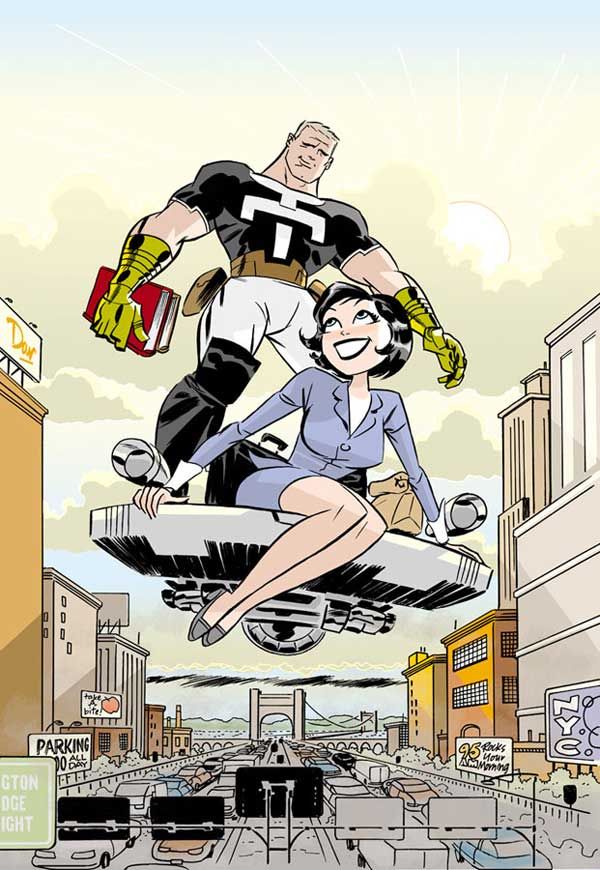I want to like "Jersey Gods" more than I actually do. In my review of the first issue, I criticized the book for not jumping directly into the "god married to human in Jersey" premise, but starting at the beginning and building to that -- and that criticism still stands.
The meeting of Barock, the god, and Zoe, the human, isn't nearly as charming or romantic here as it would be in flashbacks where the affection for and knowledge of the characters would add extra emotional weight. However, since we know the two will get married and don't yet have an emotional connection with them, the scenes border on tedious. The series was pitched to the world as a sitcom-like premise, but isn't designed like one, preferring to focus on the building war between gods, and Zoe's job.
Not that those are bad plots by any means, but, again, that's not what the book was said to be and it's hard to not feel a little betrayed -- and anxious for the destination that's coming.
If you forget, or don't know, what will eventually happen in the series, "Jersey Gods" will not doubt read better as it is a charming and fun book. I got a real thrill out of Barock not simply resigning himself to defeat and rallying back because of a cute girl. Or, there's the selfish and superficial Helius who is torn between his desires to prove himself to his father and to have a good time. Zoe is a smart and intriguing character, as well, working for a local newspaper that's headed by a man who wants nothing to do with local news. It's good stuff, but the cloud of the promised premise hangs overhead throughout.
Not to mention that, honestly, the gods versus gods plot is a little stale. Nothing here suggests that Brunswick and McDaid are doing anything new with it, so that leads to further frustration.
Though influenced by Jack Kirby obviously, McDaid's art has a unique flavor to it. There's a lot of shorthand suggestions in his work; he uses few lines to do the job where other artists would use tons. It's a very simple and cartoony style, full of energy. Even characters standing around look active and, somehow, in motion. His art really moves the issue forward, and I like how he uses very basic page layouts, but isn't afraid to break from that for emphasis.
It seems wrong to fault this book, because it isn't what I expected, but since those expectations were built by the creators, I don't know what else to do. With any hope, the book will kick it into high gear and move past the cliche god war, and to the domestic comedy promised. But, make no mistake, this is still a fun, good read, one that Brunswick and McDaid should be proud of.

